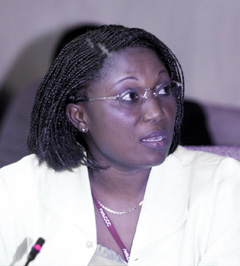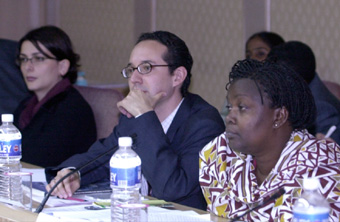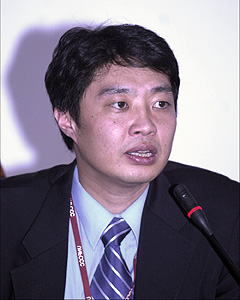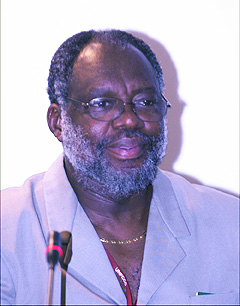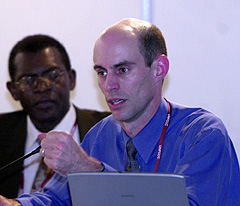|
|
|
|||||||||||||||||||||||||||||||||
|
|
|
|||||||||||||||||||||||||||||||||||||||||||||||||||||||||||
|
|
|
|
|
|
|
|
|
|
|
|
|
|
|
|
||
|
|
|
|
|
|
|
|
|
|
|
|
|
|
|
|
Suk-Hoon Woo, Korea, and Pradeep Dadhich, Tata Energy Research Institute (TERI), presented the main
outcomes of the Asian Workshop, including recommendations on: capacity
building; off-line technical expert support, adaptation technologies,
south-south networking, and business and financing sector participation;
needs assessments and implementing technology transfer programmes;
and the consideration of potential technologies in Asia, such as cogeneration
and biomass. Agyemang-Bonsu on behalf of Mark Radka, United Nations Environment Programme
(UNEP), presented UNEP activities and experience on technology transfer
information. He highlighted the Sustainable Alternatives Network and
networking under the Montreal Protocol, as models that could be used by the
UNFCCC and explained their potential benefits. Eric Martinot, Global Environment Facility (GEF), noted that
almost all GEF funded projects have technology transfer information elements,
highlighting projects on solar home systems and grid-based power generation. |
|
|
|
|
|
|
|
|
|
||
|
|
|
|
|
|
|
|
|
|
|
||||||||||||||||||||||||||||||||||||||
|
|
|
|
|
|
|
|
|
||
|
|
|
|
|
|
|
|
|
|
|
|
|
|
|
|
|
|
|
|
|
|
|
||||||||||||||||||||||



